- News
- Reviews
- Bikes
- Components
- Bar tape & grips
- Bottom brackets
- Brake & gear cables
- Brake & STI levers
- Brake pads & spares
- Brakes
- Cassettes & freewheels
- Chains
- Chainsets & chainrings
- Derailleurs - front
- Derailleurs - rear
- Forks
- Gear levers & shifters
- Groupsets
- Handlebars & extensions
- Headsets
- Hubs
- Inner tubes
- Pedals
- Quick releases & skewers
- Saddles
- Seatposts
- Stems
- Wheels
- Tyres
- Tubeless valves
- Accessories
- Accessories - misc
- Computer mounts
- Bags
- Bar ends
- Bike bags & cases
- Bottle cages
- Bottles
- Cameras
- Car racks
- Child seats
- Computers
- Glasses
- GPS units
- Helmets
- Lights - front
- Lights - rear
- Lights - sets
- Locks
- Mirrors
- Mudguards
- Racks
- Pumps & CO2 inflators
- Puncture kits
- Reflectives
- Smart watches
- Stands and racks
- Trailers
- Clothing
- Health, fitness and nutrition
- Tools and workshop
- Miscellaneous
- Buyers Guides
- Features
- Forum
- Recommends
- Podcast
TECH NEWS
Continental Grand Prix 5000 tyre with tubeless option launched + Video
Continental has launched the successor to the venerable GP4000, the brand new GP5000 which is lighter, has more grip, lower rolling resistance and improved puncture protection, and for the very first time (and finally some might say) is being offered in a tubeless version.
It’s been 14 years since the GP4000 was first introduced, a tyre that many people consider to be one of the best race and performance tyres. It’s also a tyre with many race victories at all levels to its name. Developing an appropriate successor was the aim and upgrade all the key performance metrics that are important in a tyre.
GP5000 clincher
The new GP5000 is claimed by Continental to offer 12% better rolling resistance, 20% increased puncture resistance, has improved grip and comfort and the 25mm clincher version is 10g lighter. It claims its a lighter than its key rivals but not at the expense of comfort, grip and rolling resistance.
- Review: Continental Grand Prix 4000s II 28mm tyres
The GP5000 clincher tyre is constructed from three plies of 110 TPI material with a number of developments that contribute to the improved performance. The Black Chilli compound has been further refined to hit the perfect sweet spot of rolling resistance and grip. The Vectran Breaker, a puncture resistance belt inside the tyre, has been evolved to provide greater protection.
Then there are two new features that we’ve not seen before. Lazer Grip is a lazer engraved texture on the shoulder of the tyres that is aimed at improving cornering grips, and also contributes to aerodynamic performance. It essentially roughens up the tyre a little so the tread forms a better contact with the road surface, and reduces the bedding in of new tyres. It’s also said to decrease drag as well.
And designed to provide a more comfortable ride, Active Comfort Technology is a layer of elastomer dampening material inside the tyre designed to dampen vibrations to provide a smoother, more comfortable ride over our increasingly rough roads.
- road.cc People's Choice: Your favourite cycling tyres revealed
The GP5000 clincher tyre is being offered in 23, 25, 28 and 32mm width options, with the narrowest option coming in at 200g up to 290g for the widest. There are also two 650b options with a choice of 25 and 28mm widths.
GP5000 tubeless
Yes, Continental has finally thrown its hat into the tubeless tyre ring. It’s been a long time coming, one of the most frequent questions I’ve personally had to field for many years, but Continental now joins the likes of Schwalbe, Hutchinson, Pirelli, Mavic and Specialized in offering a road tubeless tyre.
The GP5000 tubeless tyre incorporates all the new developments found in the clincher version but is claimed to provide 5% lower rolling resistance and 5% improved puncture resistance over its clincher sibling due to there being less material in the construction, and removing the inner tube reduces friction.
It has three plies of 60 TPI material constructed with the Vectran Breaker, which Continental reckons provides far superior puncture resistance when tested against leading rival in its own lab testing. The bead is constructed with a softer outer material to ease installation.
- Buyer's guide to tubeless tyres
An inner liner on the inside of the tyre provides the necessary airtight seal and it is recommended that Continental’s own sealant, a previous product available in its mountain bike range, is used to provide a good seal and plug small punctures.
The GP5000 tubeless is available in 25, 28 and 32mm widths with a 25 tyre weighing a claimed 300g, about 10g heavier than a Schwalbe Pro One tubeless tyre. There’s also a 650x28mm option.
Asked about tubeless installation and compatibility, Continental says it did extensive testing on a wide range of rims to ensure its tyre works as well as can be possibly expected but recognises there is no real standard across the industry when it comes to tubeless tyres and wheels. This is something it is actively trying to address and is collaborating with other tyre and rim manufacturers to hopefully seek some sort of resolution.
In an ideal world installation tubeless tyres is as easy as fitting a clincher tyre, and with some rim and tyre combinations, it is. But some combinations can lead to much hair pulling frustration. It’s clear a common standard would hugely help the advance of tubeless uptake for those people that like the sound of the benefits but are afraid of the potential trouble and mess.
I can’t wait to get my hands on a set of the tubeless tyres and test them on a multitude of tubeless rims to see how well they install, so stay tuned for that, it should be an interesting test.
The GP5000 clincher and tubeless tyres will cost €61 and €75 respectively, we’re waiting on UK prices. As for availability, the plan is that the tyres will be available in the shops at the same time as the embargo for this announcement being lifted today, so if you want to get your hands on a pair you shouldn’t have to wait very long at all.
First ride
Continental hosted the worldwide launch on the sunny island of Tenerife, which made a nice break from the damp and cold UK weather…
I was provided with the opportunity to ride the new GP5000 tubeless tyre in a 25mm width on the brand new Cannondale SystemSix aero bike, and I would love to be able to give you a really in-depth appraisal of their ride performance.
But the ride was really short at just 45km which is far from sufficient time to assess the tyres, and then there is the fact that the silky smooth surface of the one road we pedalled up and over Mount Teide would surely make any tyre feel fast.
The most revealing part of the test ride was the descent, a joyous ribbon of curving corners and tightening radiuses. Here the tyres certainly delivered good grip when leaning the SystemSix over in the apexes. I felt comfortable engaging in some wild lean angles, as much as could be expected on a bike I’ve never ridden before and with the brakes the wrong way around.
And when I encountered some damp patches from the low hanging cloud the tyre didn’t waver in its ability to feel glued to the road.
The real test will be on familiar local roads with a wider variety of surface textures, and also to test the 25mm GP5000 clincher tyres I’ve brought home with me against a set of the previous GP4000 S II tyres by way of a comparison.
Summary
One thing is clear though, the GP4000 has long been a solidly popular tyre and the new GP5000 continues to carry the flag and will undoubtedly be a popular choice for many years to come. The improvements may be small, you might not even notice them, but they haven’t ruined a really good tyre. It continues to deliver the level of performance expected from Continental.
As for the tubeless version, well it’s been a long time coming and it’s great to see the German tyre company finally get involved with tubeless. I know there have been many people waiting and hoping for Continental to offer a tubeless version of its top-level tyre.
There’s nothing groundbreaking though, perhaps to be expected from the conservative company, and there’s no challenge to the standards mess that exists in the tubeless market and is a serious obstacle to wider uptake.
Stay tuned for more first rides and a video first look coming soon.
- Your guide to Continental’s 2018 road bike tyre range
David worked on the road.cc tech team from 2012-2020. Previously he was editor of Bikemagic.com and before that staff writer at RCUK. He's a seasoned cyclist of all disciplines, from road to mountain biking, touring to cyclo-cross, he only wishes he had time to ride them all. He's mildly competitive, though he'll never admit it, and is a frequent road racer but is too lazy to do really well. He currently resides in the Cotswolds, and you can now find him over on his own YouTube channel David Arthur - Just Ride Bikes.
Latest Comments
- Terry Hutt 3 hours 1 min ago
I assume you can carry an e-bike battery on the tube if you leave the bike at home. ...
- chrisonabike 4 hours 3 min ago
I love it - it's a roundabout with a sculpture of a roundabout on its desk!
- cmedred 4 hours 4 min ago
From the position of the cyclist when the video starts and the position of the bike later, it looks highly unlikely that the cyclist went "into the...
- Rendel Harris 4 hours 11 min ago
To rhyme with design. I wondered this myself so looked it up a while ago, according to the founder Micki Kozuschek he and his team had a few...
- Rendel Harris 5 hours 4 min ago
It's not being pedantic at all, careless driving is successfully prosecuted (and I have been in court more than once when a driver has been...
- HLaB 5 hours 27 min ago
It's hopefully an urban myth but I heard it was designed that way on purpose, so the cyclepath captured any flooding and the busway would remain clear
- mdavidford 5 hours 30 min ago
I should imagine eating chopsticks anywhere could be potentially rather perilous.
- Rendel Harris 5 hours 48 min ago
When The Badger stopped for protesters (albeit dockworkers rather than farmers) it was their stress gauges rather than his that would have been...
- Eurodolphin 6 hours 34 min ago
Having experienced a brain injury (while my helmet only suffered a little crack) I welcome all this excellent research which looks for ways to...
- mattw 6 hours 37 min ago
Nope. Has anyone ever bought a wheel trim studded with diamonds for their car? Thought not.
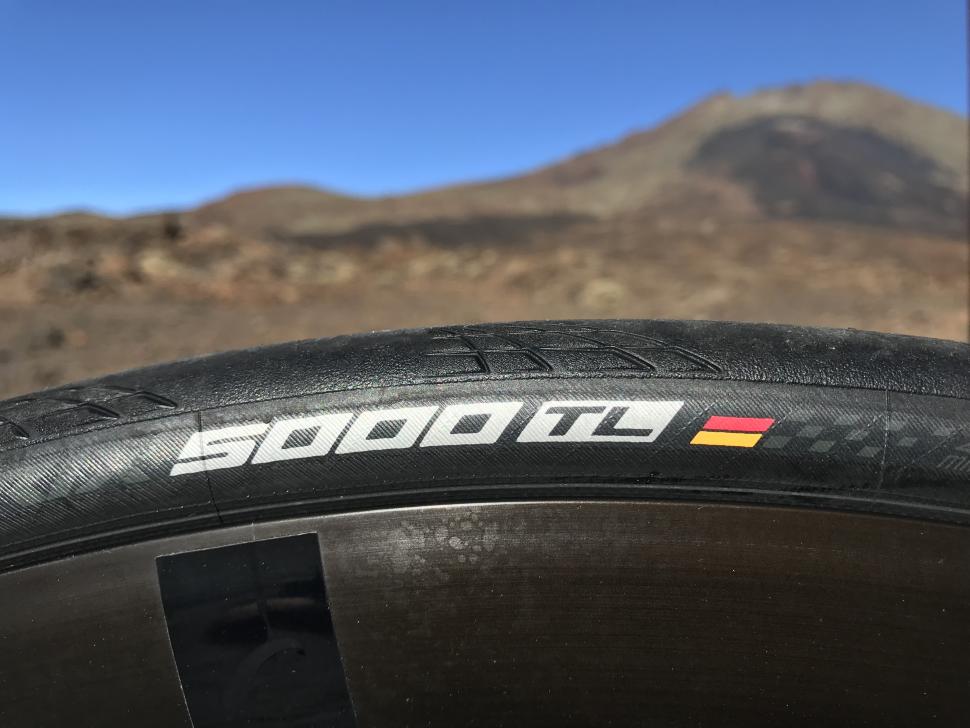
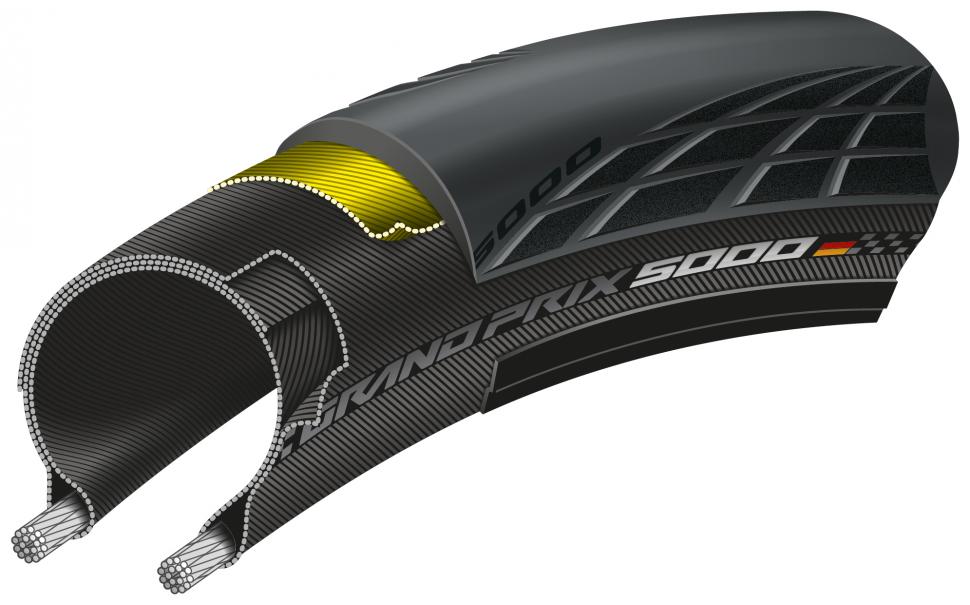
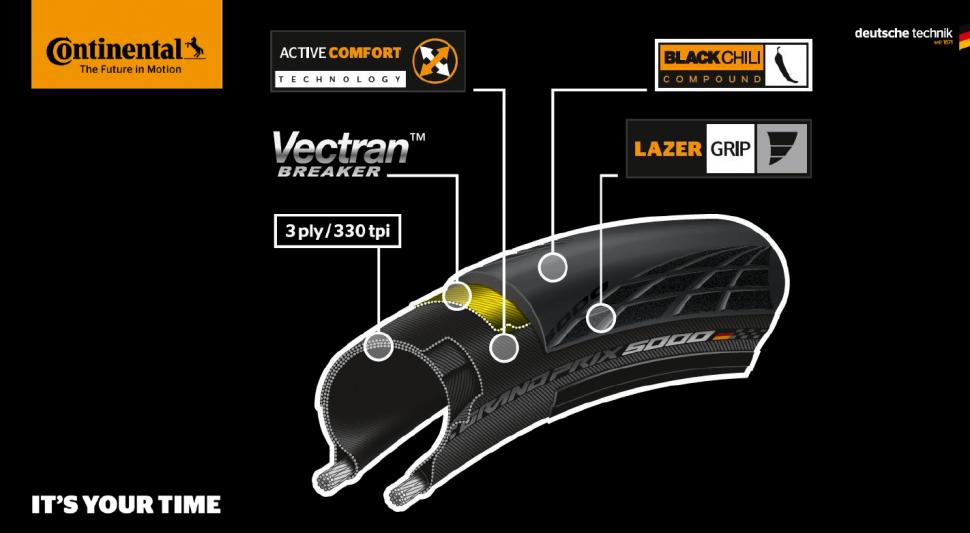
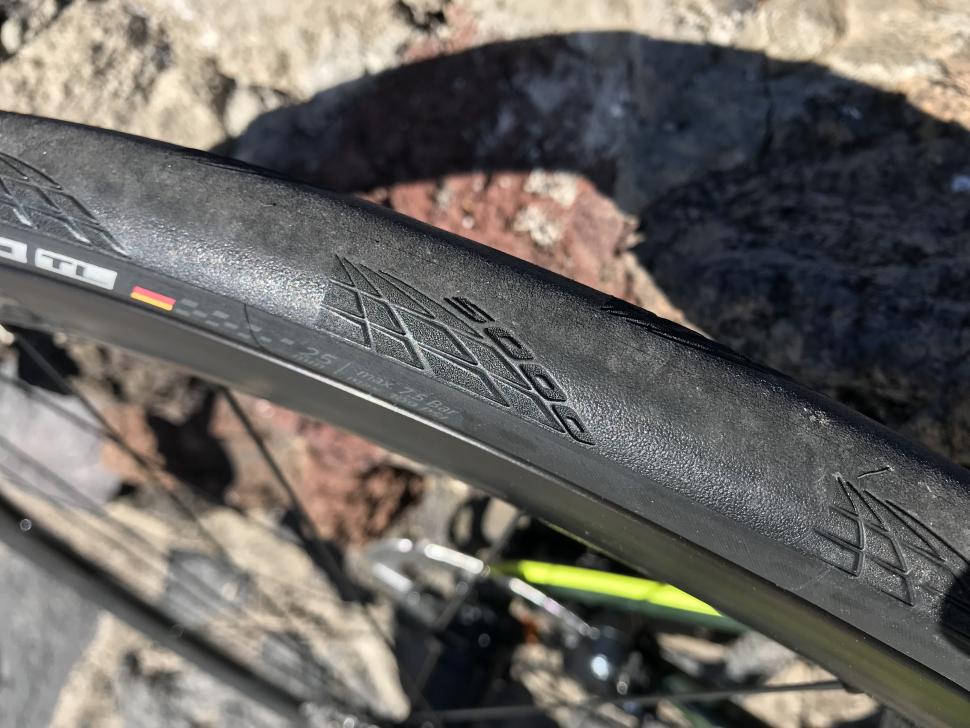
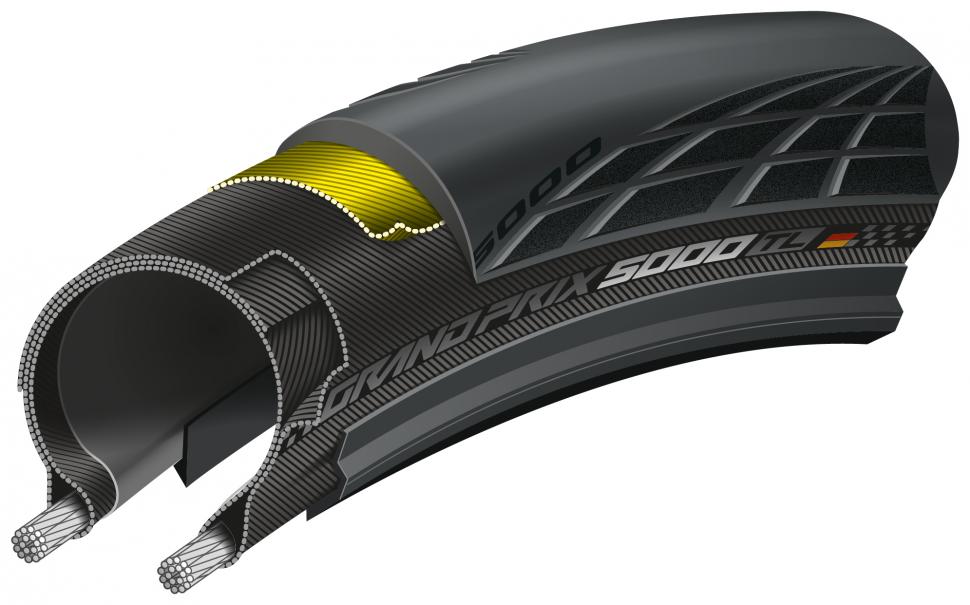
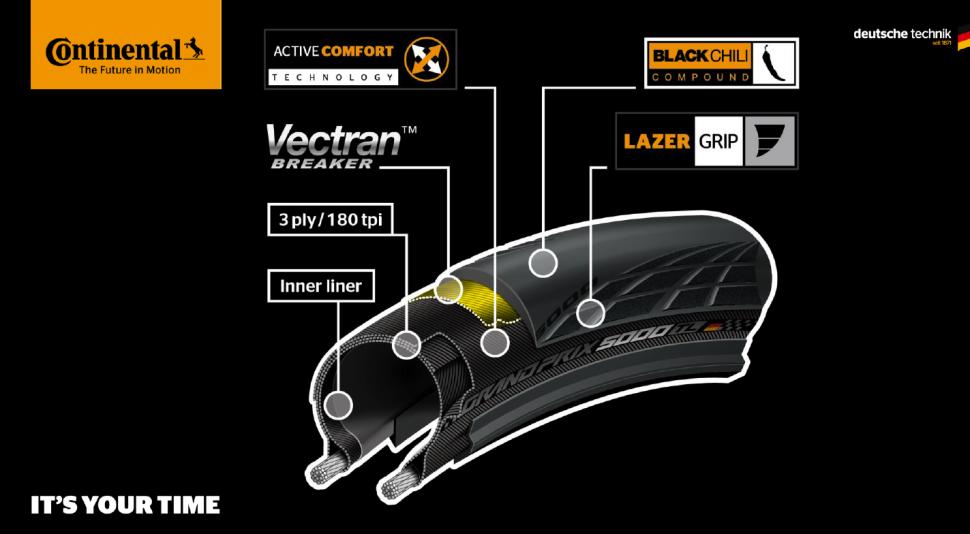
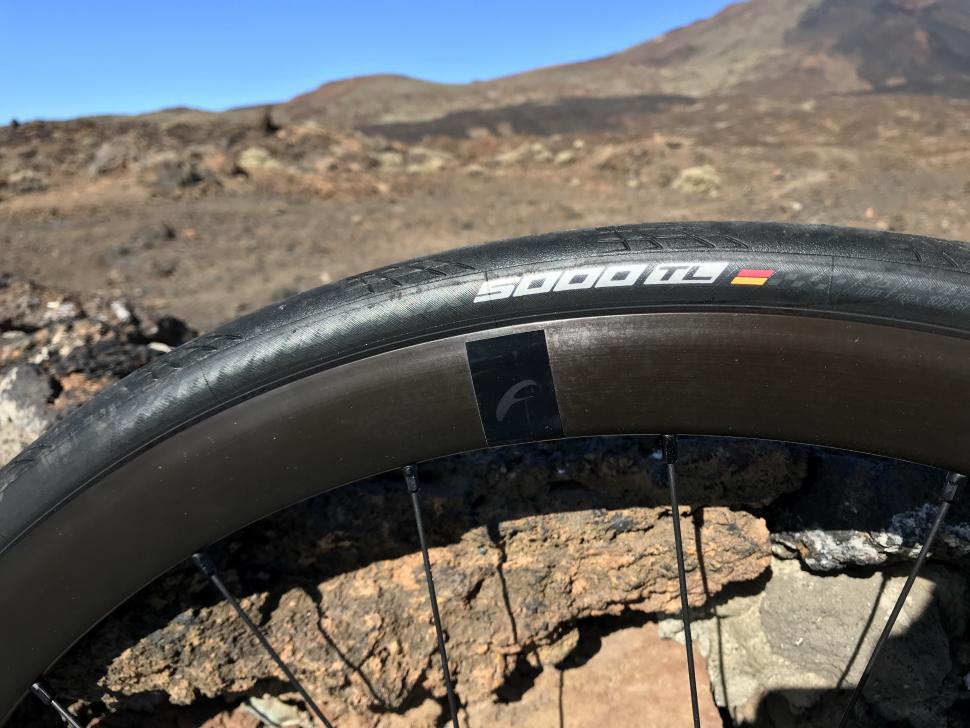
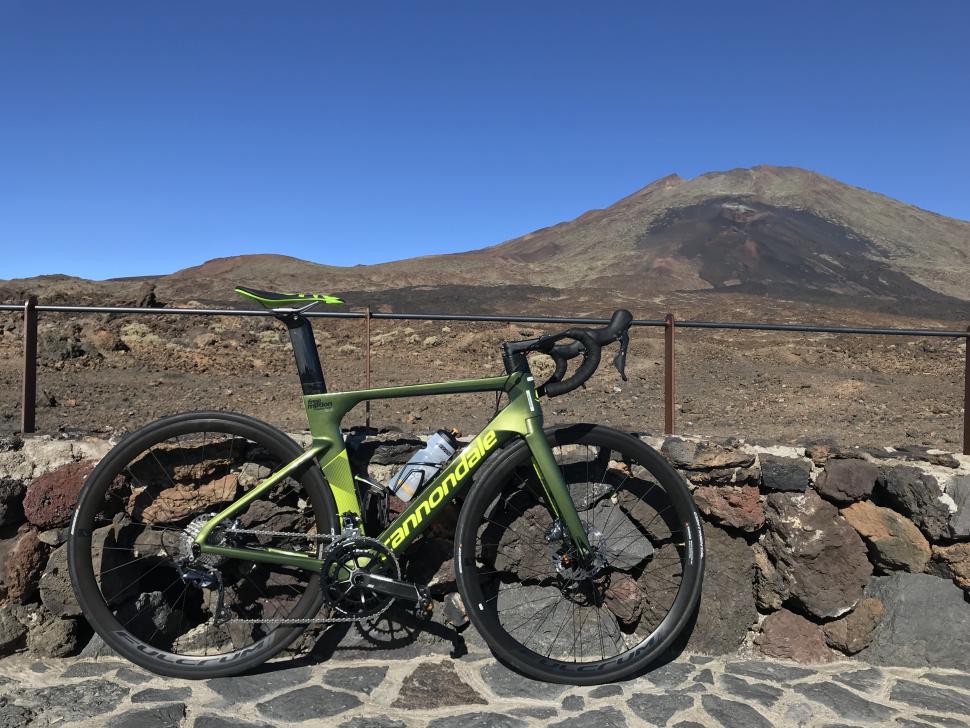

Add new comment
36 comments
Another proof that I'm a sucker for new gear...
Just ordered GP5000 TL (28mm) for my "everyday" bike.
Current Conti 4seasons on ZTR Grail rims is a harsh ride... hence the upgrade.
Additionally have to buy rim tape, valves, sealant, repair kit. It all adds up to a VERY expensive upgrade.
GP4000 may not be the fastest rolling tyre nowadays but by god it's had a good innings and still holds its own against newcomers, sidewall weakness, no worse than any other fast tyre and frankly i've ridden far weaker as many others will contest to also.
The 5000 isn't revolution, it's evolution, claims are interesting and yet no data in terms of how they achieved those claims, and as I said above the special 25mm 4000RS is faster rolling already.
And I just bought them at a discount for 36EUR


Never had a sidewall go in six years of 4000s. The only ones I've seen were caused by rubbing brake pads, something I have pointed out to those who rabidly insisted the tyre was to blame. (Clue: if there's a lip on your brake pad, it'll be rubbing tyre not rim.)
Likewise. love my 4000s ...
I too like my GP400's, and have been riding them for about as long as theyve been around. I'v ridden a few to the canvas, but have lost a lot to over-large cuts and quite a number with still reasonable tread to sidewall nicks, and none, ever, to brake or frame rub.
I've never had one go either, and am at the heavier end of the scale.
It's the UK where brakes are the wrong way round. All the rest of us, in Europe at least, have them the correct way.
Explain your theory as to why having right front, left rear is the 'wrong way round'.
LOL. Very good
What do you class "a long period"? I've worn the tread out on mine before any sidewall failure.
Anyone that has used gp4000 tyres over a long period will have had a side wall failure.
No mention in the blurb that the side walls have been beefed up to keep up with the Schwalbe One !
Had few of those...
In my experience, stronger side walls means harsher ride. I have GP 4-season (28mm) on winter bike and GP 4000 II (28mm) on summer bike. Comfort level on GP 4000 is so much better. 4-season feels harsh and "wooden" compared to GP 4000.
P.S. I have swapped wheels around just to check if harsh ride was not due to the frame. It is not.
Excellent, thank you.
12% lower crr would still make it more drag than the 4000 RS tyre which is available for £45
So much hyped!
75 Euros... I think that's more than my Raleigh 10 speed cost ages ago.
Any info on actual widths? My 4000S2 on 17mm internals measure 30mm, so I wonder if the new 32mm will go to 33 or maybe 34.
the 23 was almost 25 for me and the 25 almost 28 so maybe they have just put different stickers on them and kept the rubber with same width?
Some are seeing 31mm from the 28mm 4000, my Panaracer Race A Evo 28s are 31mm on a pair of H+Son TB14s, I think they are a slightly lower height than the 4000, just enough that I can get them under the guards and arches of my deep drop calipers.
I would expect the 32mm to be closer to 34mm but to have a fairly significant height differential even on a 17mm rim.
I've just bought some Jack Brown green tyres but haven't fitted them yet but they should fit under the calipers sans guards but will likely go onto my winter/audax/tourer to replace the 32mm Borough Pros.
Does anybody know whether these tyres inflate to widths at the Schwalbe One end of the scale i.e. bigger by a few mm on wider rims, or at the Hutchinson end i.e. pretty much on the size stated?
Dave, did you pack your vernier callipers in your luggage to Tenerife?
I seem to remember reading an article a little while ago about aero advantage of certain tyre/rim conbinations and the GP4000 came out favourably due to the tread markings. I wonder if they have regurgitated that for the PR or whether the new Lazer Grip really affords much improvement. This is purely academic interest of course, I don't travel at speeds that would give me a benefit, except maybe down hill...
I didn't pack my callipers! I have however got a pair of 25mm clincher tyres so I'll get them fitted to some different width rims and measure them, and report back here once I've done that
I just bought 4000 28s for my new Synapse build and now I want 5000 32s!
I would stay on clinchers though as I don't want to get a new set of wheels right now.
I’d be curious to know how well the TL variety work in a ghetto tubeless set up.
Continental did say it strongly recommends only using tubeless ready rims. That'll be the same advice from any tyre manufacturer as well, and I'd definitely recommend only using tubeless rims especially with the higher pressures involved
Does the illustration for the clincher, which seems to show a steel bead, imply that a folding version isn't available?
They are both folding tyres
Flying all the way to Tenerife for a 45km ride? Blimey!
Surely Cambrian Tyres (UK distributor) could sort a group ride for you, though Aberystwyth probably doesn't have quite the same attraction in November.
GP4000 IIs will surely hold their value as it's still a really good tyre while discounts on the 5000s will be hard to find.
I'd much rather have gone to Wales for a longer ride on more familiar road surfaces!
Pop up to Aber then. Stock's arriving soon, there's spare beds here (Simon Mac can testify to the hostelry), and the roads are Tenerife-smooth in places. Plus, the beer's better and Gruff Lewis is opening a new cycling cafe in Talybont from next week, at the bottom of the Nant-y-Moch 6-mile climb. What more could you possibly want? Conti tyres, coffee, cake, climbing and cows.
Pages